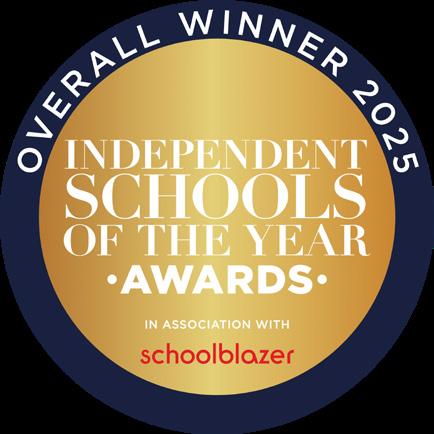
Independent School of the Year 2025
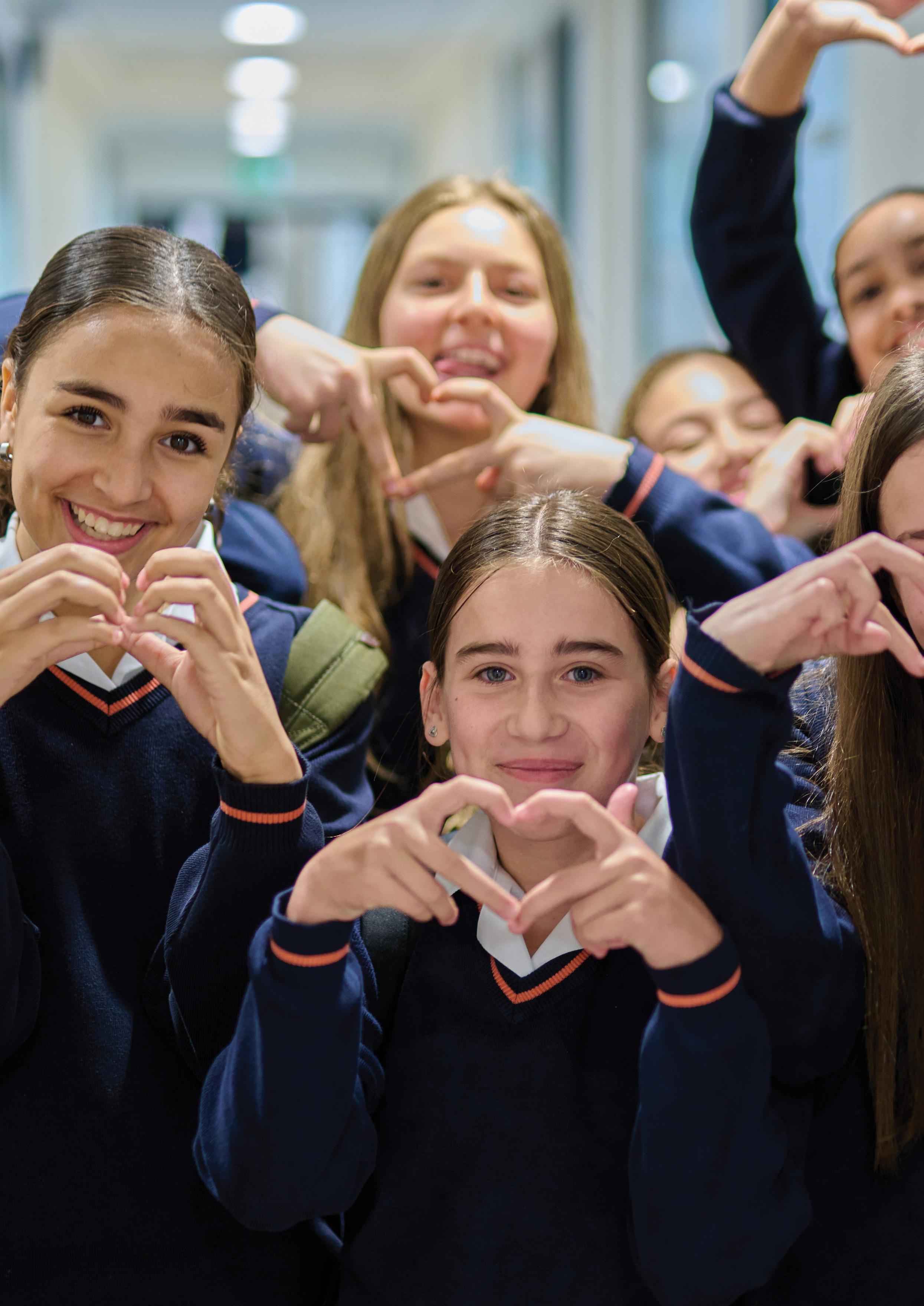


Independent School of the Year 2025

2024/25

Our annual cycle of evaluation is a crucial process, allowing us to review our progress from the past academic year, assessing how well we met our goals and advanced our long-term objectives. The insights from this review are then used to set our future priorities and strategically direct our resources for the coming years.

In February we welcomed a team of inspectors from the Independent Schools Inspectorate, and we were found to meet all relevant standards, including those for leadership, education, and safeguarding.
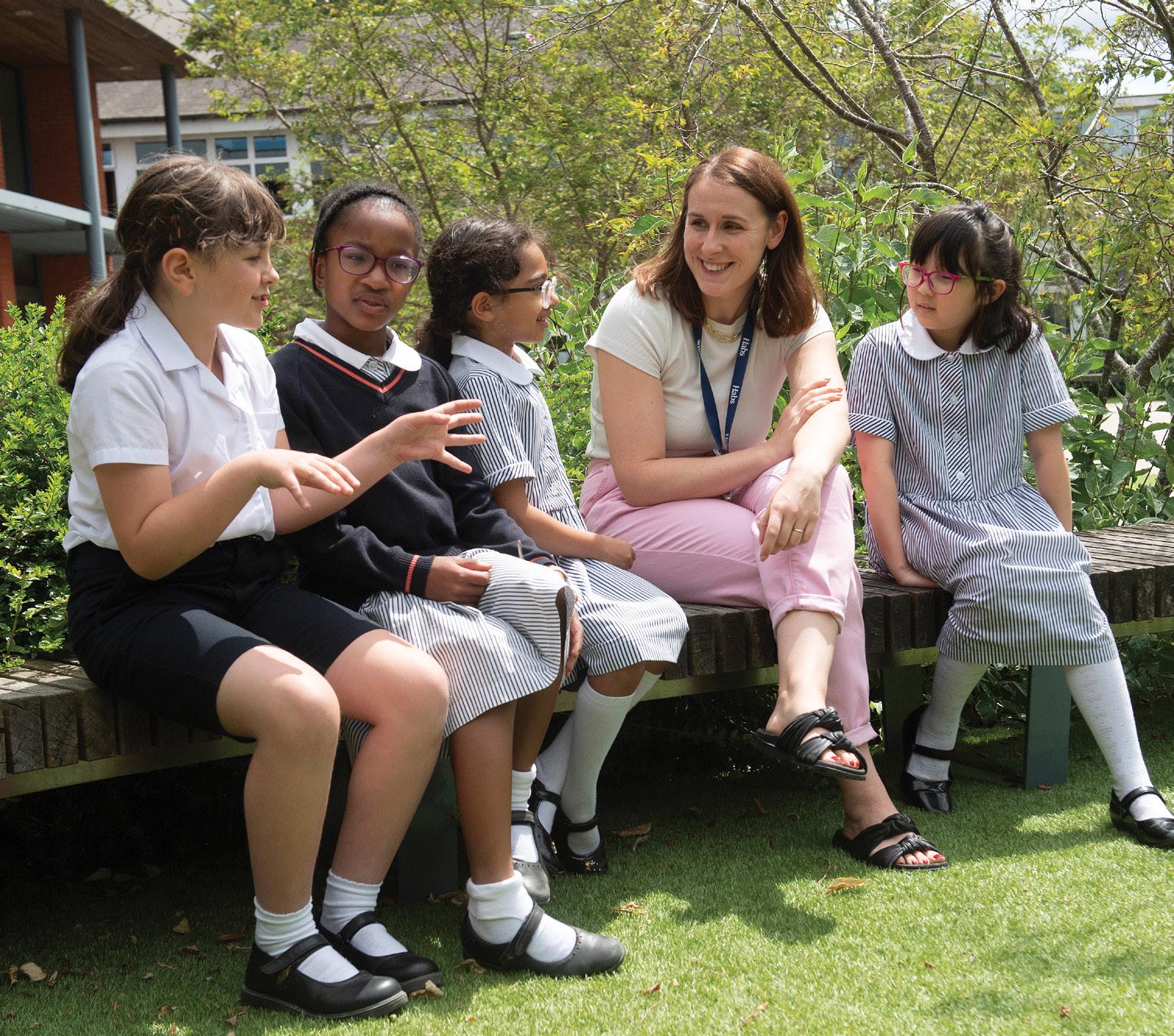

The report praised many of our strengths, highlighting the exceptional leadership that cultivates a love of learning and academic success while also prioritising student well-being.
The inspectors also commended the Junior School’s comprehensive curriculum, high student attainment, effective pastoral care, and robust safeguarding practices. We were delighted to receive such a positive report that celebrated all aspects of life in the Junior School.
Looking ahead, we are excited to use the report’s recommendations to further develop our provision: improving the consistency of tutoring in the Senior School and enhancing student engagement with co-curricular activities in the Senior School.
2024/25 was rather a busier year than most as we celebrated our 150th anniversary since our foundation in 1875 and the 50th anniversary of our move from Acton to Elstree. A number of special events were held including an Anniversary Ball hosted by the Parents’ Guild, projects that celebrated our anniversaries through various departments’ curriculum and a special Habs 150 Day, in which all our celebrations culminated.


On Wednesday 4 June, His Royal Highness The Duke of Edinburgh KG visited to celebrate our 150th anniversary and officially open the new Edinburgh Rehearsal Room. Upon arrival, The Duke was greeted by hundreds of students and welcomed by key school and company officials. He then toured the school, meeting with staff and students and viewing a display of photographs from previous royal visits.
Junior School Community
Art Project: Young pupils showcased their art project themed on “love through haberdashery.”
St Catherine Singers
Performance: The choir performed a special piece commissioned for the anniversary, We Thank You by Canadian composer Sarah Quartel.
Partnership Program
Discussion: Students and staff from the school’s partnership program discussed the impact of their work, which includes 52 hours of weekly curriculum support led by over 400 Habs students.
Drama Performance: Year 9
Drama Scholars performed a short piece in the new Edinburgh Rehearsal Room.
The Duke of Edinburgh unveiled a commemorative plaque to officially open the Edinburgh Rehearsal Room, then spoke with the students who had performed. He also met with students involved in The Duke of Edinburgh Award scheme, discussing their expeditions and the impact of the program.
The visit concluded with a lunch where The Duke conversed with staff and dignitaries. Students were thrilled to have the opportunity to meet a member of the Royal Family and share their experiences.

A journalist working for the Good Schools’ Guide visited the school and we were delighted with the subsequent review, in which developments in the last two years at the school were praised: Some highlights from the report included:
ACADEMIC EXCELLENCE:
Habs Girls ‘continuously shows its gleaming mettle, flying amongst the top schools in the UK in all league tables. Parents describe their daughters as ‘bright’ and ‘driven’, and the school’s ‘high expectations’ and ‘academic rigour’ are mentioned. The report also notes that the girls are ‘easily a couple of years ahead of most schools’.
The report praises the significant improvement in pastoral care since Dr Bagworth-Mann’s arrival. It notes that pastoral care has ‘ramped up tenfold’ since the previous visit with Dr Bagworth-Mann seen as ‘largely responsible for prioritising mental health and overhauling the pastoral team’. Students feel ‘known’ and parents feel the school is ‘a kinder school now’.
The school’s diversity is described as its ‘superpower’. The report notes that students come from ‘just about every ethnic and religious background’. It highlights that the school actively promotes inclusivity through various cultural and religious societies. The multifaith room, vibrant LGBTQ+ Society, and neurodiversity initiatives are also mentioned as evidence of the school’s commitment to creating an inclusive environment.
Beyond a simple review, the Evaluation Report is an opportunity to reaffirm what our school stands for.
It articulates our core aims and values and clarifies the collective purpose of our staff: to prepare our students not only for the opportunities that await them but to empower them to make a profound impact in the world.
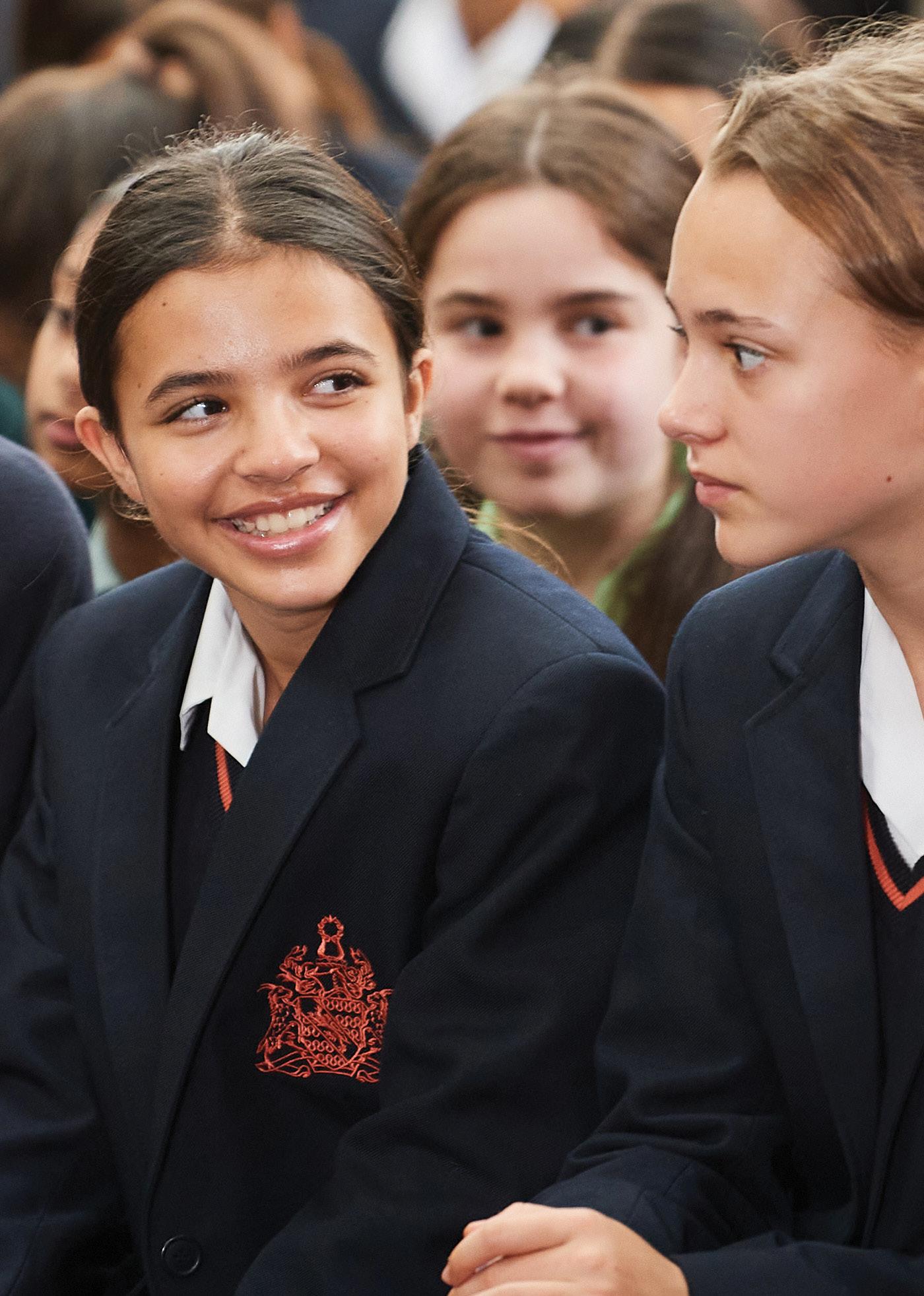

Everything we do is guided by these principles.
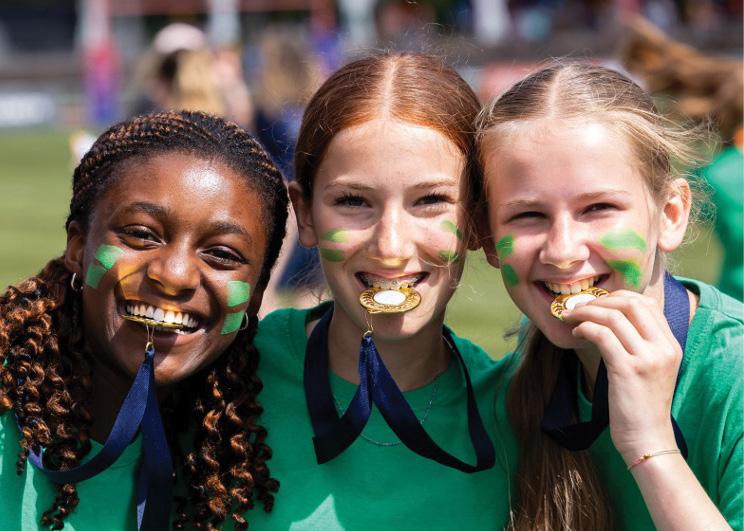
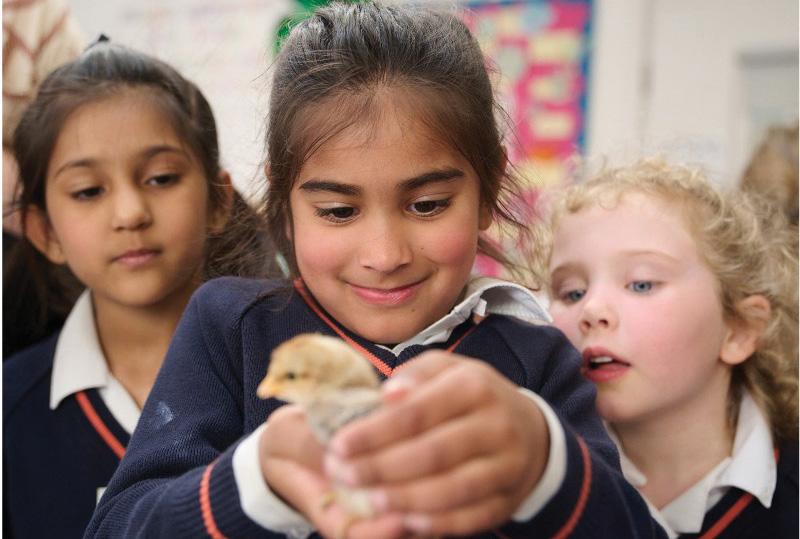
We are bold and ambitious – for ourselves, for others and for the world.
This is underpinned by our altruistic and philanthropic foundation, which drives our values and behaviours. We expect everyone to give of their best, to stretch boundaries, and to challenge the status quo. We believe that ambition can be limitless. When combined with courage, curiosity and community, ambition can be a selfless and powerful lever for change.
We create and use every opportunity to engage with the world around us; we ask questions, challenge assumptions and express our ideas.
Alongside our academic interests and skills, we love to exercise our imaginations, creativity and spirituality. Our broad and carefully curated curriculum leads us into experiences of awe and wonder – bringing a sense of magic and excitement to learning.


Exploring beyond our comfort zones enables us to become more self-aware, adventurous, resilient and independent.
We aim high, following our dreams but we cope well if we do not always succeed. We understand how to balance humility and boldness when speaking out on behalf of ourselves and others and we are unflinching problem-solvers, continually seeking to change the world for the better.
is one caring, respectful community on one fabulous campus.
Beyond our students and staff, this sense of collaborative togetherness extends to our families, alumni, partner schools, the Haberdashers’ Company and schools and even the world. Our focus is on belonging, inclusivity and celebrating our differences. We are learning from and working with wider communities – locally, nationally and globally. We bring the world to our door, but we also step through that door into the wider world.
The Elstree Schools have an ambitious ten-year strategy to 2030 with aims that are shared by all four schools.
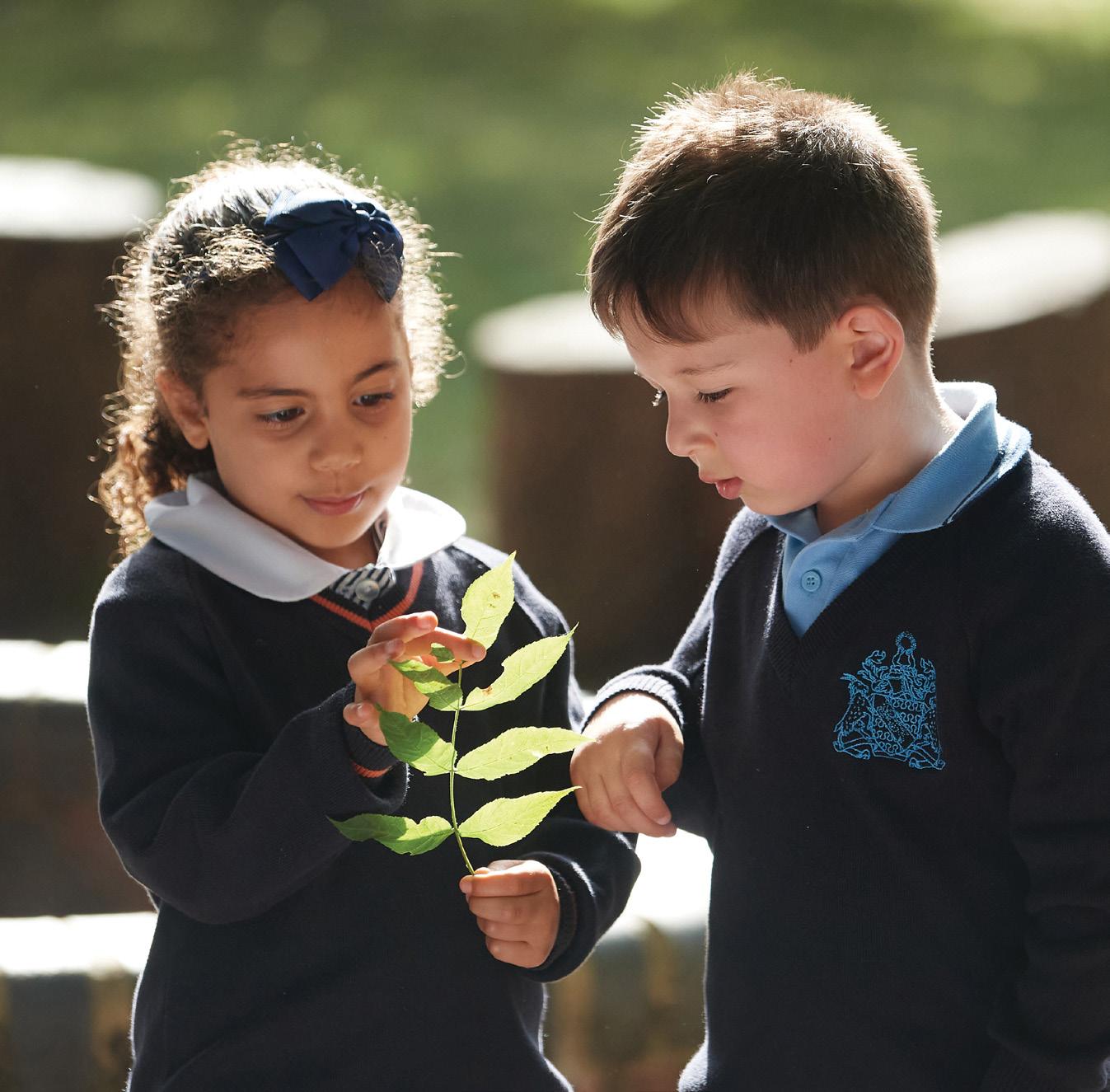
Whilst we continue to develop as a community in line with our strategic aims, the unique identities of the schools and requirements to best serve our student and staff bodies necessitate specific development priorities. The priorities are informed by and link to the Elstree Board’s objectives for this year. The Schools’ Priorities are intended to help us to deliver Goal 1 most directly, although there are links in other areas.

Deliver outstanding educational experiences and outcomes for all pupils and high levels of customer satisfaction
Improve Admissions structures, systems and processes to deliver an exceptional customer journey at all entry points 1 2 3
Safeguard the financial future of the Schools through a multifaceted response to the introduction of VAT and Business Rates Removal
4 5 6
Ensure harmonious and positive relations with the staff body: Pay, Productivity, Performance, Progression
Establish reputation for Educational Innovation
Steward and develop the Estate sustainably and cost-effectively
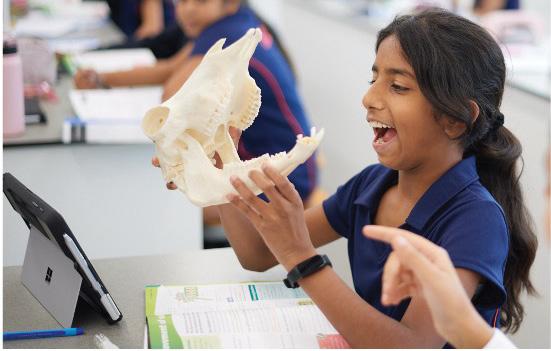
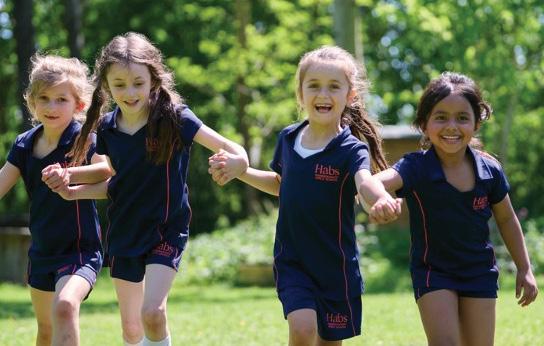
We will provide the most exciting, challenging and innovative experiences –bringing a sense of magic and wonder to learning. We will prepare students intellectually, emotionally, socially and technologically to carve out the futures they want. They will become lifelong learners, capable of endlessly adapting to an ever-changing world.
Every student will be valued for who they are as a unique individual.
They will know that Habs always offers kindness and encouragement and that we will proactively nurture and support them. We will also ensure that they understand the importance of protecting and developing their own wellbeing, spirituality and independence.
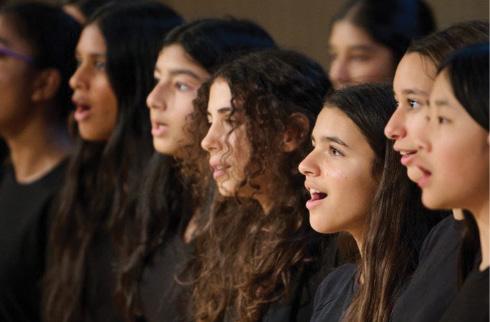
The depth and breadth of our co-curricular programme will be unmatched, offering superb opportunities for each student to excel academically while also pursuing their personal interests and talents.
Students will be capable of being both team players and leaders, developing their resilience, self-awareness and confidence they need to take risks and cope with the outcomes.
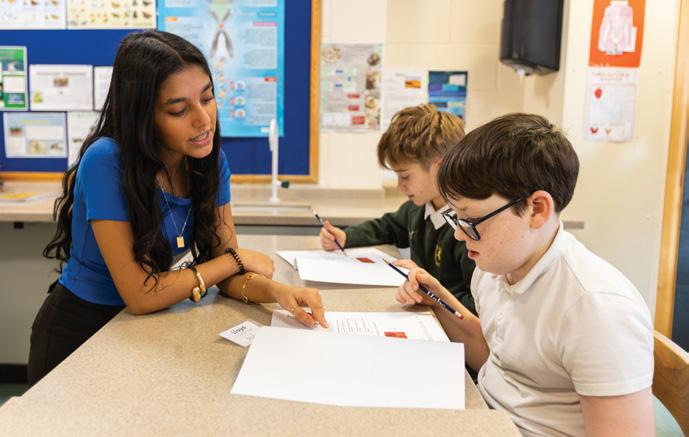


We will ‘open our gates’ and expand our horizons, engaging more deeply with a wider range of communities, institutions and individuals – locally, nationally and globally.
This will deliver mutual opportunities for discovery, adventure and progress.
Our reputation will draw the brightest students to us. We will also become an inspirational, diverse and inclusive ‘destination employer’, attracting world-class teaching and professional services staff.
We will retain this talent through excellent personal and professional development opportunities, a strong sense of belonging, mutual support and respect.
We will be a responsible ‘custodian’ of our historic campus to create an outstanding learning and working environment for students and staff.
We will reimagine education by being a responsible custodian of our campus; supporting and developing existing buildings and facilities; investing in stateof-the-art, environmentally sustainable facilities which can flawlessly support the delivery of our other aims.



- 1 Ensure a commitment to inspirational teaching that stretches, engages and enthuses all students in their pursuit for academic excellence.
- 2 Ensure that teaching consistently enables every student to make excellent academic progress and that a culture of scholarship is at the heart of all academic activity.
- 3 Support and inspire teachers to continually develop both through acquiring new skills and honing expertise.
- 1 Promote confidence, ambition, leadership and well-being in all our students to ensure each student flourishes in all their activities.
- 2 Promote a culture of praise and celebration so that students recognise and celebrate their strengths.
- 3 Ensure that every student has a deep sense of belonging within our community ensuring all relationships reflect a spirit of kindness and consideration.
- 1 Working with the Boys’ School we will ensure our co-curricular programme is unmatched, providing the very best opportunities for students outside the classroom.
- 2 Our students will have access to outstanding enrichment sessions that both meet their needs and expand their horizons.
1 Ensure a commitment to inspirational teaching that stretches, engages and enthuses all students in their pursuit for academic excellence.
Learning Walks:
Over 20 hours of joint learning walks were conducted with various groups, including the Senior Leadership Team (SLT), Heads of Department (HoDs) and teaching staff.
Professional Development (PD) Programme: We are building a culture of mutual observation. As part of our Wednesday morning Staff Development Meetings, 71% of staff found the paired/ triad observations helpful.
Lesson Observation Criteria: With input from HoDs, a clear set of criteria was established and shared in September. This framework has led to more frequent use of retrieval practice and checking for understanding in lessons and it provides a clear basis for addressing under-performance.
Department Reviews: We conducted five department reviews (Psychology, Art, History, Religion and Philosophy, and PSHE), which were invaluable for recognising successes and setting targets.
Feedback from 571 students, 79 parents, and 36 staff members allowed us to gather valuable perspectives and make data-driven improvements.
Student Voice: Student feedback has become a key focus, with regular class and HOD-led sessions. Two sessions on homework and marking led to a significant increase in positive feedback from students. This will continue to be an area of focus next year.
Cover: New procedures are in place to prioritise subject specialist cover, which has been positively received by students. Reducing the amount of cover is an area we will continue to focus on next year.
Study Skills: A study skills programme has been designed and partially implemented. While integrating it into the pastoral schedule has been challenging, we delivered at least two assemblies for students in Years 7 to 13 and sessions for parents in Years 11 and 13.
IMPACT
- Increased staff awareness of Teaching and Learning (T&L) expectations.
- More frequent use of student voice.
- Improved use of subject specialists for cover.
- Positive outcomes noted in the ISI report.

2 Ensure that teaching consistently enables every student to make excellent academic progress and that a culture of scholarship is at the heart of all academic activity.
Data Use: Clear guidance on data reporting and monitoring was shared with all staff. We have improved pupil tracking and intervention by regularly meeting with Heads of Section to analyse Progress Grades and ‘Likely’ scores. The new BI dashboard will provide value-added data for Years 10 to 13 and end-of-year assessments in Years 7 to 9 provide a rigorous data point for interventions.
Academic Societies:
We are working to enhance academic societies to ensure they are well-attended and have a strong scholarly focus, particularly for Key Stage 3 students. A new Friday afternoon programme will support this goal, this will be introduced next year.
SEND: Following a recent report, we restructured the SEND department and assigned a staff member to manage access arrangements. This change aims to allow the Head of Individual Needs to spend more time in the classroom. This is an area that we will continue to work on and develop as we are mindful that the number of students requiring support is increasing.
Futures: The Futures/Careers team was restructured in line with recent recommendations. A new Head of Futures is improving our careers provision, and a new Head of Scholarship is fostering a culture of scholarship for all students. This includes the launch of the Alexandrian Society, which holds weekly sessions for our scholars, with activities including external speakers, review of academic articles and problem solving exercises.
- Very positive outcomes noted in the ISI report.
- Improved Sixth Form structures and development and strengthening of the Futures programme.
- Ability to make accurate exam outcome projections, with strong projections for Year 11 and improving ones for Year 13.
- Better data and insights for Key Stage 3.
- Successful implementation of the scholars’ programme.
3 Support and inspire teachers to continually develop, both through acquiring new skills and honing expertise.
Staff Training: We ran a series of learning lunches for staff with the themes of teaching and learning, pastoral concerns, SEND, EDI, digital and innovation. We also continued our trainee teacher, middle leadership, and senior leadership programmes, all of which were successful. However, due to low attendance at some learning lunches, we are redesigning the professional development (PD) programme next year.
Staff Empowerment:
Learning walks with senior leaders, Heads of Department (HoDs), and teaching staff have empowered staff and informed the design of our Wednesday morning Staff Development Meetings. Our goal is for HoDs to integrate PD topics into their department meetings, aligning their work with the whole-school programme.
We improved the line management of HoDs with more regular one-on-one and small group meetings, enhancing accountability and support. The “Week Ahead” emails have also been a highly successful communication tool.
Appraisal: We implemented a revised appraisal document to reduce staff workload and expect a 100% submission rate.
- Aligned messaging and expectations for HoDs.
- Positive outcomes noted in the ISI report.
- Positive feedback from staff development meetings.
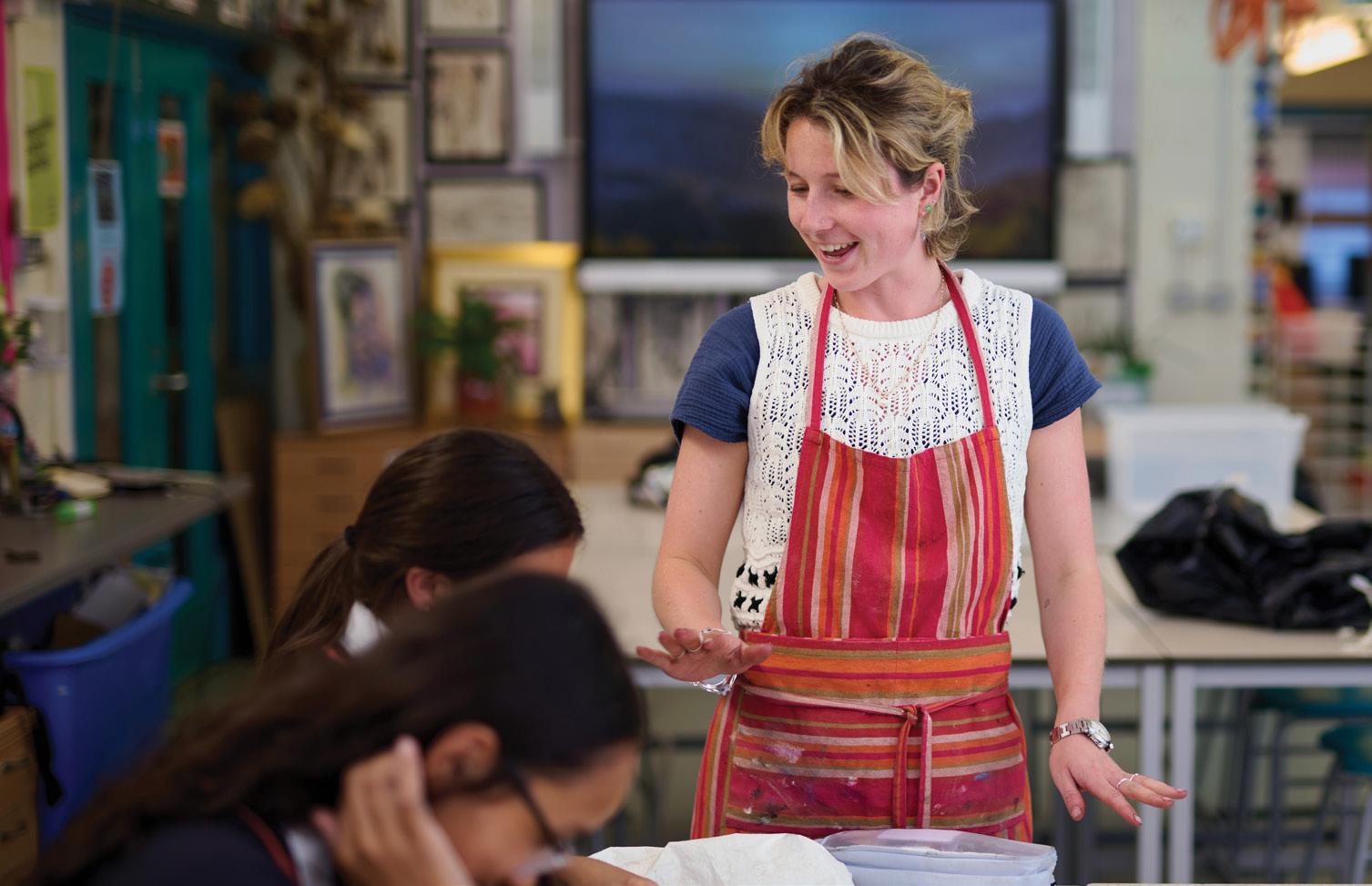
1 Ensure a commitment to inspirational teaching that stretches, engages and enthuses all students in their pursuit for academic excellence.
Curriculum Reviews: We completed comprehensive reviews of the English, Mathematics, Spanish, Religious Education (RE), and Forest School curricula.
English (writing): We have established a consistent and well-structured approach to teaching writing across the Junior School.
iPQ Project: In partnership with the Boys’ Prep School, we will introduce the ISEB Project Qualification (iPQ) to Year 5 in September. This programme promotes independent, student-led enquiry through a project on ethical entrepreneurship and fast fashion.
Mathematics: Our revised planning now emphasises problem-solving and reasoning over worksheets. We also introduced a successful Maths Week and increased the use of concrete resources.
Adaptive Teaching: All teachers are actively implementing adaptive teaching strategies, with a focus on our “Habs High 5” principles, to ensure every learner is appropriately supported and challenged. Learning Support Assistants (LSAs) are also gaining confidence and becoming more proactive in their roles.
Academic Testing: We have implemented a consistent and aligned approach to academic testing with the Boys’ Prep using the Quest assessment framework. We also introduced fortnightly Pupil Progress Meetings to facilitate structured, datainformed conversations.
- Teachers report feeling confident and well-supported in English, with a tangible “buzz” of learning in classrooms.
- Students are proud of their English work and speak about it with clarity and enthusiasm.
- In Mathematics, students find lessons more enjoyable and challenging, with a deeper understanding of concepts.
- The iPQ project will provide teachers with an opportunity to collaborate and design a curriculum that fosters independence through enquiry-led exploration.
- Classrooms are more inclusive, with adjustments and scaffolds in place to support a wider range of learners.
- LSAs are becoming more proactive and confident in their roles.
2 Ensure that teaching consistently enables every student to make excellent academic progress and that a culture of scholarship is at the heart of all academic activity.
Adaptive Teaching: All teachers are actively implementing adaptive teaching strategies, with a focus on our “Habs High 5” principles, to ensure every learner is appropriately supported and challenged.
Academic Testing and Use of Data: We have implemented a consistent and aligned approach to academic testing with the Boys’ Prep using the Quest assessment framework. We also introduced fortnightly Pupil Progress Meetings to facilitate structured, datainformed conversations.

Careers: We have introduced a series of parent workshops and external workshops featuring professionals from a wide range of fields, designed to broaden students’ understanding of diverse careers and spark curiosity about future pathways.
- Classrooms are more inclusive, with adjustments and scaffolds in place to support a wider range of learners.
- The new testing framework has made data tracking more robust and transparent.
- All students are now closely monitored, and interventions are better targeted, leading to positive outcomes, particularly for those needing additional support.
- Students have enhanced their understanding of how classroom learning connects to future possibilities.
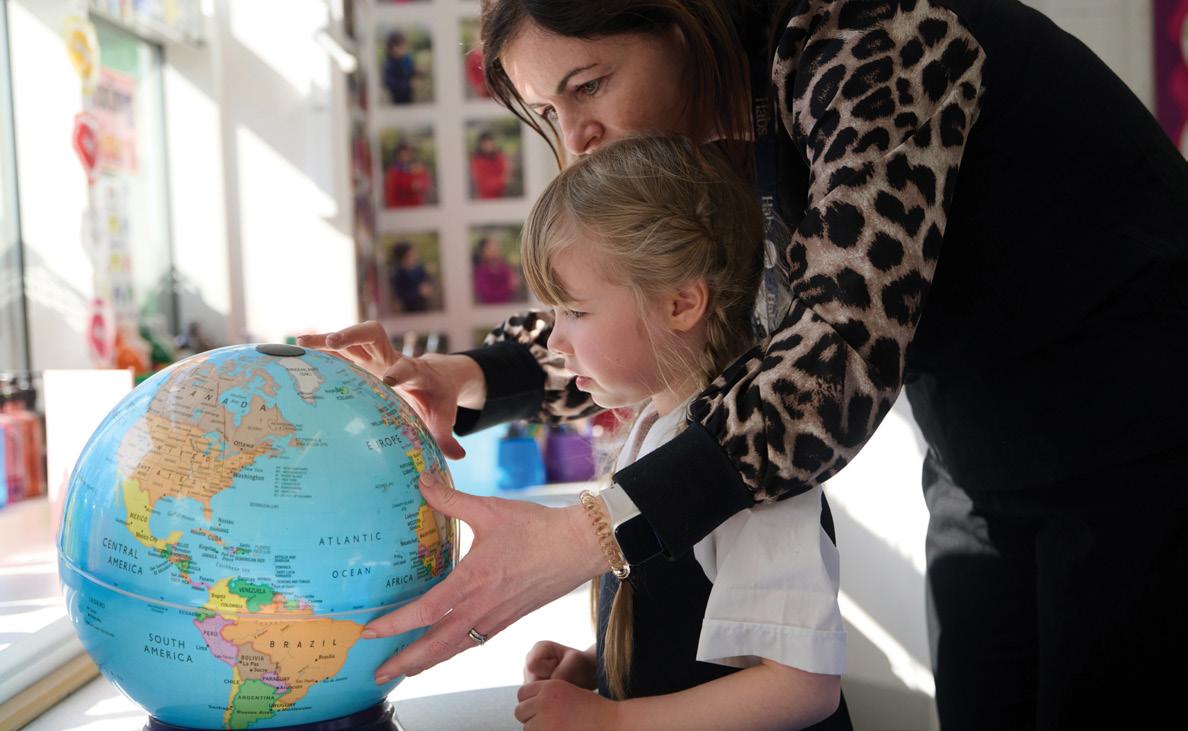
3 Support and inspire teachers to continually develop both through acquiring new skills and honing expertise.
Curriculum Development and Staff Training: Leaders have designed a whole-school English curriculum grounded in progression and rich reading experiences, while providing targeted support for planning to strengthen teaching outcomes. Ongoing audits and action planning have driven significant improvement across the four core areas, with clear next steps identified to sustain and deepen impact.
Empowerment and Innovation in Curriculum Design: Through close collaboration with the Director of Innovation, staff have played a central role in developing the Independent Project Qualification (iPQ) and shaping innovative curriculum initiatives.
This approach has empowered teachers to lead on new developments, fostering a culture of creativity, ownership, and forward-thinking practice across the school.
Line Management: We strengthened the oversight of LSAs by placing their line management under the Head of Inclusion, supported by regular one-on-one and small group meetings to enhance accountability and professional growth.
Appraisal: We implemented a revised appraisal document to reduce staff workload and expect a 100% submission rate in line with the senior school.
- A cohesive whole-school English curriculum has strengthened teaching quality. Targeted planning support and regular audits have driven significant improvements across core areas, with clear next steps identified.
- The development of the iPQ and other curriculum innovations has empowered teachers to lead new initiatives, fostering creativity, ownership, and a forward-thinking culture across the school.
- Line managements has improved staff accountability and professional growth.
- The revised appraisal process has simplified documentation and reduced workload.
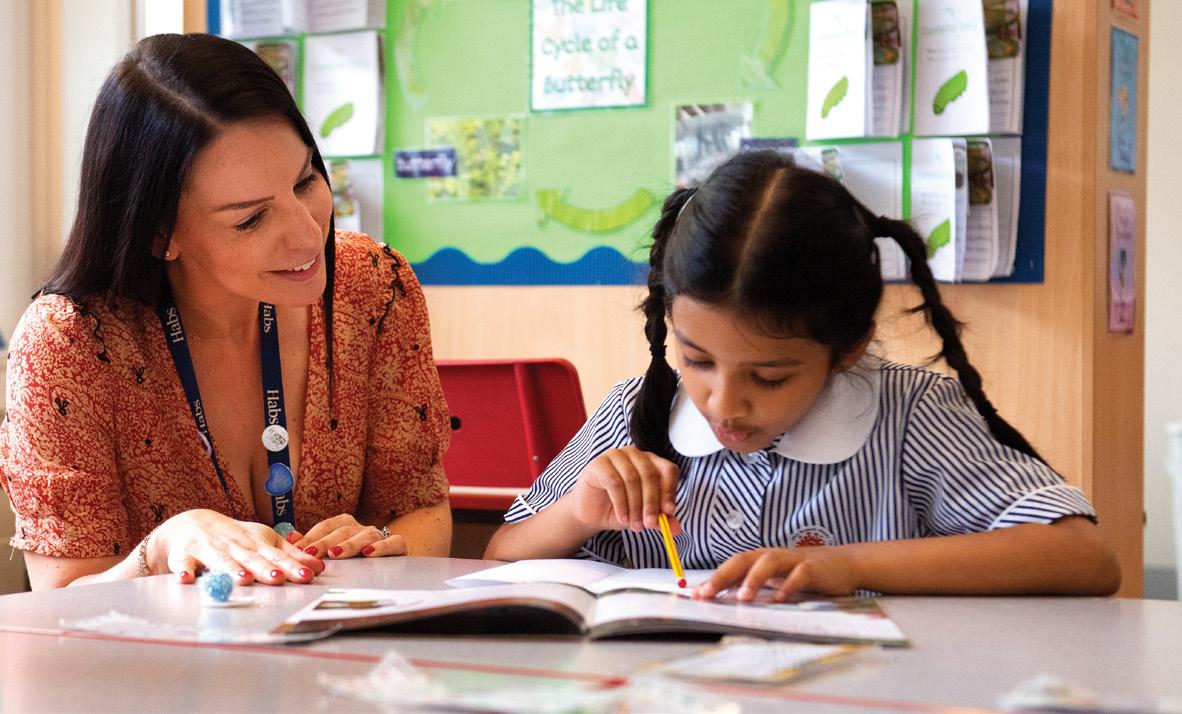
1 Promote confidence, ambition, leadership and well-being in all our students to ensure each student flourishes in all their activities.
Peer Mentoring: We launched a peer mentoring programme with formal training for both pastoral and academic mentors.
Induction Programme: We enhanced our induction for new students with regular check-ins, senior-school taster sessions for Junior School students, and informal breaktime meetings. We also introduced Parent Induction Dinners to build early relationships.
Student Voice: We expanded platforms for student feedback and implemented feedback loops to ensure student input leads to action. We have also integrated student voice into departmental evaluations and PSHE feedback.
Wellbeing Provision: We expanded nursing and counselling services with a triage system and a new booking system to reduce waiting times. We also trialled pop-up coaching sessions in the Sixth Form. The students have shared positive feedback on these initiatives and the pop up initiative will be developed and strengthened next year.
Wellbeing Spaces: We designed a new outdoor wellbeing space, secured donor funding, and are now working with the estates team on its implementation. This will be ready for next year. PSHE: We revised our PSHE curriculum to be more relevant and impactful by using specialist staff for delivery and integrating assessments and feedback.
- Students feel listened to and supported through the peer mentoring programme, which has fostered a stronger sense of community.
- Stronger early connections for new students have led to improved academic and social outcomes.
- Student voice has empowered students and contributed to a stronger sense of belonging.
- Students can now access timely support from the counselling team, enabling earlier interventions.
- The outdoor wellbeing space will represent a visible commitment to student wellbeing, offering a calm, non-clinical space for decompression.
2 Promote a culture of praise and celebration so that students recognise and celebrate their strengths.
Prefect Elections: We remodelled the prefect election process to ensure fairness and transparency. By introducing a number of stages to the process, this allowed an increased number of students to apply.
Rewards System: We embedded a new rewards system with House Points and tiered awards linked to school values. We also launched a new dashboard that enables tutors to track student progress and achievements.
Culture of celebration:
The Headmistress meets regularly with students to hear about their achievements and celebrate success. We also introduced slides during Friday assemblies to share successes across the student body.
- Most students trust the new prefect election process and feel represented by their leaders.
- A culture of praise and celebration is being embedded across the school as achievements are tracked and celebrated in assemblies.
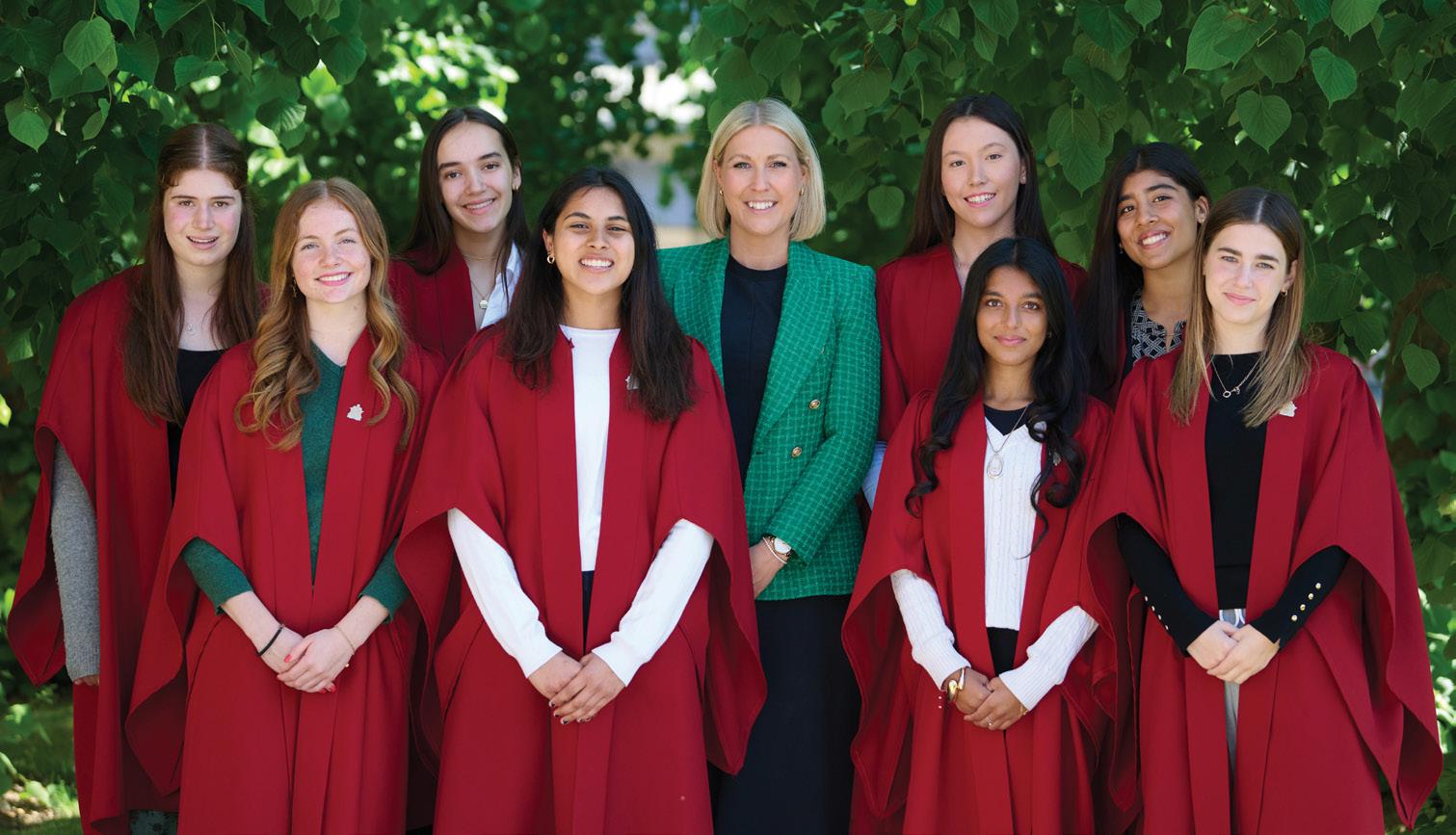
3 Ensure that every student has a deep sense of belonging within our community ensuring all relationships reflect a spirit of kindness and consideration.
Friendship and Support: We delivered workshops and assemblies on empathy, resilience, and anti-bullying. Some notable examples include the visit of Humanutopia and the One Day Film workshops delivered to Year 9 and Year 10 students. Lower down the school there have been team building days, day trips and pastoral residential trips, which have all helped encourage friendships and a sense of community.
Transition support: We have worked with students who will be making significant transitions to different sections of the school next year.
The Head of Middle School has been working with Year 6 and their families and students in Year 11 have had the opportunity to attend breakfasts with sixth form students to find out more about Sixth Form life. These initiatives have received very positive feedback.
Tutor Role: We have trained staff on how to use a new dashboard that enables tutors to better monitor student attendance and rewards. The role of tutor in developing strong relationships with our students and their families will be a key priority for next year.
Pastoral Leadership: We have provided training and development opportunities for pastoral leaders to clarify their roles and responsibilities. A key priority has been the training around the use of MyConcern and the importance of early intervention with pastoral and safeguarding concerns.
- Students have been empowered to manage friendship issues and support one another, reducing conflict.
- A stronger sense of community has been nurtured.
- A more proactive tutor role has helped more students feel known and supported, leading to earlier interventions and reduced safeguarding escalations.
- Leaders feel more confident and capable in their roles, ensuring students receive timely and effective support.
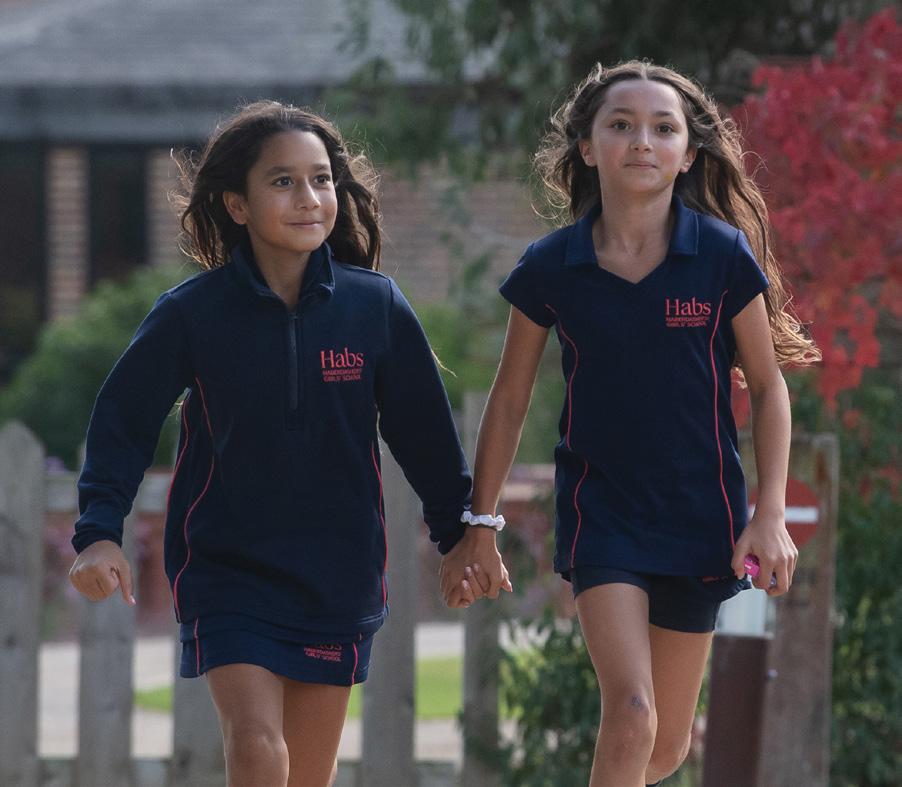
1 Promote confidence, ambition, leadership and well-being in all our students to ensure each student flourishes in all their activities.
PSHE Curriculum: We conducted a comprehensive review and update of the PSHE curriculum across all year groups. Parental engagement was prioritised through information sessions and workshops on topics like skincare and managing friendships. At the heart of this work is promoting confidence and fostering self confidence with the students.
Peer Mentoring: We launched a peer mentoring programme pairing Senior School students with junior school pupils to provide additional wellbeing and emotional support, fostering positive relationships and a sense of community across the school.
The Junior School have been supported by the expanded nursing and counselling services, the introduction of the triage and booking system has reduced waiting times. Pupils have benefited from attending wellbeing workshops, support for siblings with SEND, and a dedicated club for those who have experienced loss.
Student Voice: We have expanded opportunities for the girls to share their views and experiences and clear feedback loops to ensure their input leads to meaningful action. Student voice is now embedded in classroom evaluations, PSHE lessons, and wider school initiatives, helping pupils feel heard and valued.
: We have developed plans to create a larger playground area featuring astro-turf, increasing opportunities for active play and outdoor engagement for all pupils for 2025/2026.
- The updated, personalised PSHE curriculum is more closely aligned with students’ developmental needs, leading to increased engagement and relevance in lessons.
- Expanded nursing and counselling services, triage system, wellbeing workshops, SEND sibling support, and a club for pupils experiencing loss have improved emotional support and reduced waiting times.
- Senior-junior peer mentoring fosters positive relationships, emotional wellbeing, and a stronger sense of community across the school.
- Increased opportunities for pupils to share their views and influence decisions have strengthened engagement, empowerment, and a culture where pupils feel heard.
- Plans for a larger astro-turf playground will expand active play and outdoor engagement, supporting physical development and social interaction.
2 Promote a culture of praise and celebration so that students recognise and celebrate their strengths.
Rewards and Celebrations: We have further enhanced our rewards and celebration opportunities to ensure all pupils are recognised and motivated. This includes initiatives such as breakfast music concerts, academic certificates, and other events designed to celebrate effort, achievement, and talent across the school.
Behaviour Policy:
We strengthened the Behaviour Policy to align with the Boys’ Prep, introducing clearer descriptors and an additional level to ensure greater consistency and transparency across the school.
House Points: We enhanced the monitoring of House Points through iSAMS, increasing visibility and engagement, and are planning to introduce a tiered certificate system to further celebrate pupil achievement.
Parent Communication: We modernised our communication approach by moving from a traditional newsletter to dynamic updates via Firefly and class blogs. Additionally, we are trialling the new ‘HabsApp’ to improve usability and deliver a more seamless experience for parents.
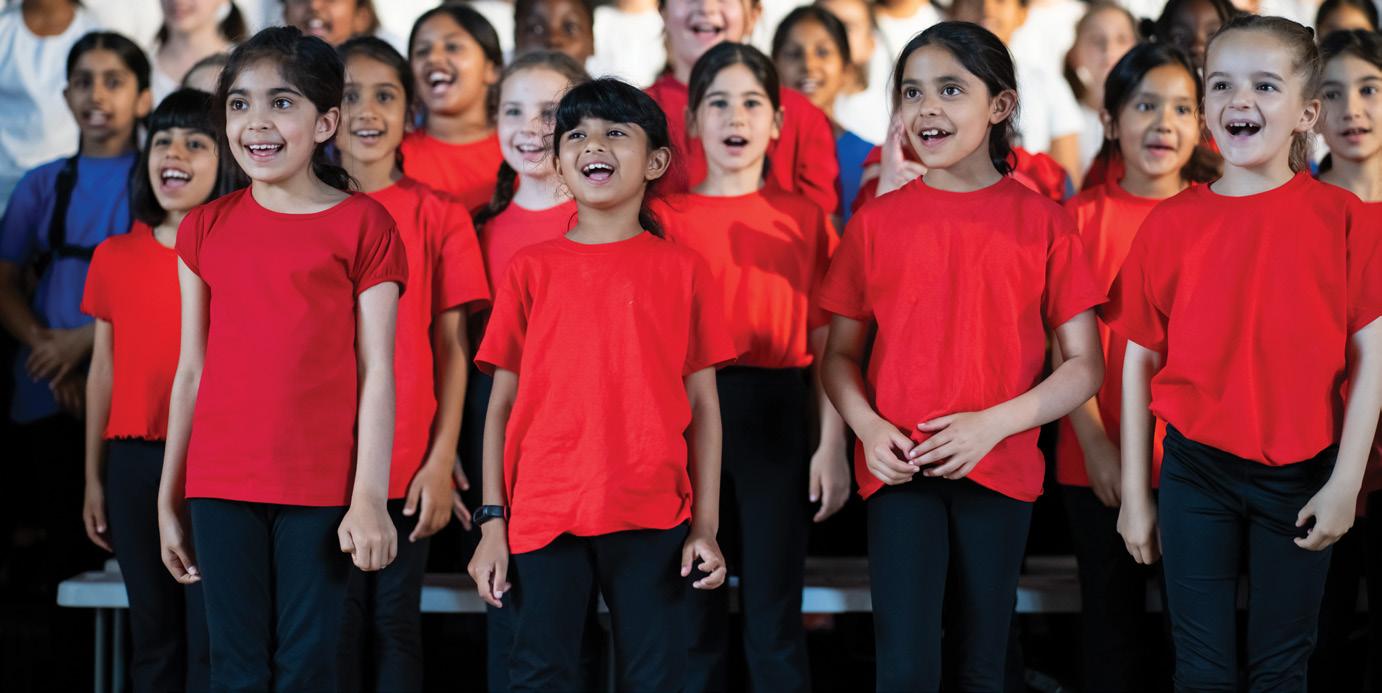
- Enhanced rewards and celebrations have boosted pupil engagement, motivation, and pride in their achievements, ensuring that effort and talent are consistently acknowledged across the school.
- Strengthening the Behaviour Policy has promoted a consistent approach to behaviour expectations, leading to greater transparency, fairness, and understanding among pupils and staff.
- Improved tracking and visibility of House Points has increased pupil participation and enthusiasm, while the planned tiered certificate system will further incentivize achievement and foster a sense of accomplishment.
- Modernising parent communication via Firefly, class blogs, and the trial of the HabsApp has improved accessibility, timeliness, and usability, strengthening home-school partnerships and keeping parents more informed and involved.
3 Ensure that every student has a deep sense of belonging within our community ensuring all relationships reflect a spirit of kindness and consideration.
Friendship and Support: We have delivered ageappropriate workshops and assemblies focusing on empathy, resilience, and anti-bullying. Junior pupils have benefit from team-building days, day trips and residential trips, all designed to foster friendships, collaboration, and a strong sense of community.
Transition Support: The Deputy Head Pastoral and Head of Middle School have worked closely with Year 6 pupils and their families to ensure a smooth transition, including taster lessons and visits from Middle School teachers to the Junior School, helping pupils feel confident and prepared for the next stage of their education.
Staff Training: Class teachers have received targeted training to strengthen student relationships and pastoral support, enhancing the wellbeing and social development of Junior School pupils.
Wellbeing Resources: We are piloting the Happy Confident Company programme in Year 5 to continue enhancing pupils’ resilience, emotional intelligence, and compassion, supporting their ongoing social and emotional growth in a structured and engaging way.
- Activities have fostered empathy, resilience, and a sense of belonging.
- Year 6 pupils and families are better prepared for Middle School.
- Teacher training has strengthened wellbeing support.
- The Year 5 pilot builds resilience and emotional intelligence.

1 Working with the Boys’ School we will ensure our co-curricular programme is unmatched, providing the very best opportunities for students outside the classroom.
Change of Leadership with the creation of an overarching Director of Co-Curricular, and the appointments of a centralised Co-Curricular Manager and Trips Manager. The purpose of the restructure is to ensure equality of opportunity for boys and girls.
Centralisation of Performance Music across both the boys and girls schools, including an initial restructure of the staffing model (appointment of overarching Director of Performance Music, Musician in Residence and Music Manager) and alignment of processes, ensembles and concert structure, ensuring equality of opportunity and experience for boys and girls.
Change to Sports Leadership including a change of leadership and the creation of an overarching Director of Sporting Operations and Development role.
This approach has addressed concerns about the leadership of sport, boosted morale within the department and progressed the ambition of girls’ sport. Allied to this change of leadership, the appointment of a DoSOD supports the sharing of resource, the development of girls’ sport, the centralisation of certain key sports (cricket and aquatics) and improved collaboration of facilities and grounds.
Change to Leadership structure of CCF and Outdoor Education with appointment of overarching Head of Outdoor Education and Contingent Commander of the CCF, an overarching Assistant Head of Outdoor Education and a new appointment of an Outdoor Education Administrator).
Restructure of the Friday Programme (including CCF/OE, Partnerships and Academic Societies). This action addressed issues with resource for the CCF and Outdoor Education, whilst opening broader opportunities for students to engage in Academic Societies and Partnerships.
Centralisation of ‘Oracy ’ based activity including Debating, MUN and EYP, including restructure of leadership. Building on the success of the joint HABSMUN and EYP conferences, MUN club and Debating have now been centralised, addressing the gap in provision between the schools, affording all students better opportunities to engage in recreational and competitive debate.
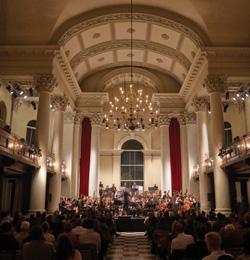
1 Working with the Boys’ School we will ensure our co-curricular programme is unmatched, providing the very best opportunities for students outside the classroom.
Expansion of the trips programme. Responding to parental and student concern about an imbalance in the trips provision, the trips roster has expanded in all corners of the provision with increased sports tours, cultural and recreational opportunities, subject based residentials and language tours as well as a number of joint opportunities for boys and girls.
Changes to the Field Day programme including creation of a unified Year 7 to 9 programme and a reduction to the Year 10 to 13 programme.
- This work has provided students with the very best opportunities outside the classroom and has been positively recognised by the ISI.
- Strong parental and student feedback with regard to the centralisation of key Co-Curricular areas e.g. Music and Sport.

- Greater equality of opportunity and experience across the board: girls have the same access to Co-Curricular opportunity as boys.
- Impacting the culture of our schools with Co-Curricular taking a more prevalent role across both schools.
2 Our students will have access to outstanding enrichment sessions that both meet their needs and expand their horizons.
Significant changes to Co-Curricular structures have been put in place to ensure we continue to drive towards greater equality between the two schools. Strengthening depth and quality of experience is at the heart of these structural changes.
Bolstering the quality of key Co-Curricular areas such as STEM and Oracy through investment and structural changes ensuring that girls have the same pathway to high quality experiences as boys (e.g. development of higher quality VEX Robotics equipment, coaching and opportunities, broadening opportunities for girls to engage in high quality debate).
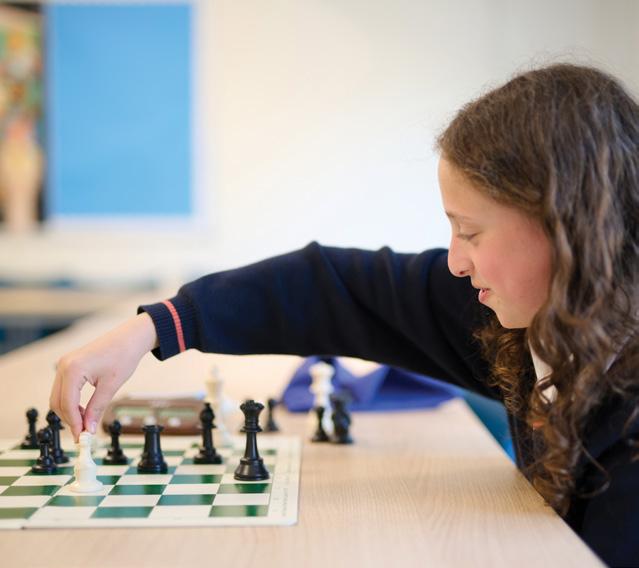
Centralising SOCS to ensure students from both Boys’ and Girls’ schools can both see and access opportunities available in both schools (e.g. boys and girls having access to Bridge (BS), Dance (GS), Chess (BS) etc).
Creation of a joint Co-Curricular Fayre celebrating the depth and variety of Co-Curricular opportunity across our schools, affirming that opportunities are open to all, girls and boys.
Development of Academic Societies by providing ring fenced time, clarity of expectation and more uniformed guidelines for how these societies should operate.

- A greater understanding of excellence in Co-Curricular across a range of activities (e.g. high-quality concerts at St John’s Smith Square, MUN at the Hague, Recording at AIR Studios, far reaching trip opportunities).
- ISI noted positive direction of these plans in their report.
- Clearer structure for Outdoor Education with the launch of Bronze DofE in Year 9, improved outdoor Field Day opportunities for students in Years 7 to 9, scope for increased participants on the Silver and Gold Duke of Edinburgh awards.
- Greater clarity of offering with an improved view of Co-Curricular on SOCS, this will also allow for improved monitoring of student engagement.
1 Working with the Boys’ School we will ensure our co-curricular programme is unmatched, providing the very best opportunities for students outside the classroom.
Extended After-School
Provision: We introduced a shared after-school programme with Premier Education, extending care and activities until 6pm to support families and provide additional enrichment opportunities.
Equitable Co-Curricular Access: A comprehensive review was conducted to ensure fair and consistent access to co-curricular opportunities across the Junior School and Boys’ Prep, enhancing participation and engagement for all pupils. Increased opportunities for more clubs and to participate in competitions such as cricket and chess.
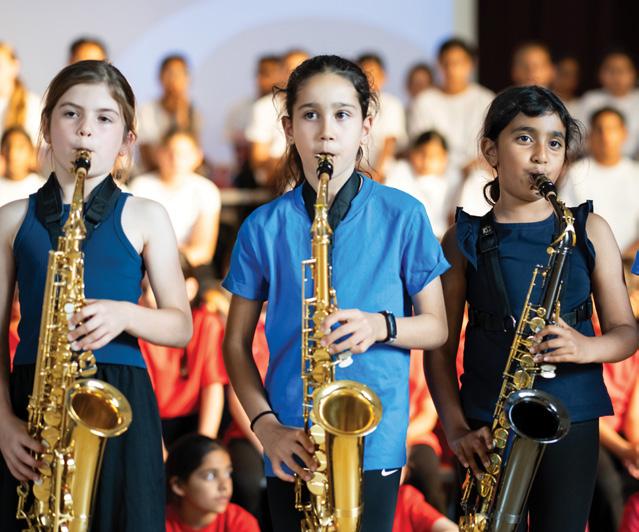
Games Provision: We have aligned and extended games afternoons to ensure all girls have equitable opportunities alongside the Boys’ Prep, promoting the development of key skills and increasing participation in fixtures and competitive play. As well as holding our first joint Sports Day which allowed for greater collaboration.
Expanded Music Provision: We have increased music opportunities across KS2 by introducing inclusive concerts for all pupils, ensuring every child can perform and develop confidence, creativity, and a love for music.
Co-Curricular Fair: We hosted a co-curricular fair to raise awareness of the full range of opportunities available, encouraging pupils to explore new activities, try different clubs, and broaden their interests.

- The introduction of extended after-school care and activities until 6pm pm has provided families with greater flexibility and pupils with enriching opportunities beyond the school day.
- A comprehensive review has increased fairness, access, and participation in clubs and competitions, such as cricket and chess, across both schools.
- Aligning and extending games afternoons, alongside hosting the first joint Sports Day, has promoted equity for girls, developed key skills, and expanded opportunities for competitive sport.
- Inclusive KS2 concerts have given all pupils the chance to perform, boosting confidence, creativity, and engagement with music.
- Hosting a co-curricular fair encouraged pupils to discover new activities, broaden their interests, and engage more fully in school life.
2 Our students will have access to outstanding enrichment sessions that both meet their needs and expand their horizons.
New Year 3 Music Programme: We have confirmed the launch of an enhanced Year 3 music programme starting September 2025, designed to introduce pupils to a broad range of musical experiences, develop their skills and creativity, and foster a lifelong appreciation for music.
Residential Enrichment: Following a full review of residential trips, we introduced Rootd Adventure for Year 3, and plans for a Year 6 sailing course continues to offer engaging outdoor learning experiences that develop pupils’ skills, resilience, and teamwork.

Outdoor Education Provision: We completed a full review and rewrote the KS2 outdoor education curriculum to ensure it remains engaging, skill-building, and provides a wide range of exciting learning opportunities for pupils.
Induction Programme: We have reviewed and updated the induction programme for September 2025 to ensure it effectively supports all pupils, accommodating the expansion of the Junior School and promoting a smooth transition into the new academic year.

- The new Year 3 music programme will broaden pupils’ musical experiences, develop skills and creativity, and foster a lifelong appreciation of music and build relationships with parents and Guardians.
- Improved residential opportunities ensure pupils and parents are confident with the provision.
- Improvements in KS2 outdoor education will offer exciting, skill-focused opportunities, ensuring continued pupil engagement and development.
- The updated induction programme for September 2025 supports all pupils, accommodates the Junior School expansion, and promotes a seamless start to the academic year.
- Aligned and extended games afternoons, alongside the first joint Sports Day, have increased girls’ participation, developed key skills, and enhanced collaboration and competitive opportunities.

Independent School of the Year 2025 for outstanding educational partnerships

The Telegraph’s best value private school (Highest rating - very good)